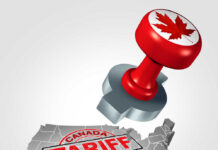
People struggling with a poor credit score and looking for ways to fix it may be surprised at how different the opportunities are. Two common programs for repairing your credit score are debt consolidation and credit repair. Both options can help significantly, but understanding the difference can help you choose the correct path for you.
Debt Consolidation or Credit Repair
Debt Consolidation is a refinancing program that allows you to combine all sources of debt and other liabilities into one loan. This loan is then paid down over time. Common debts that can be consolidated include student loans, auto loans, medical bills, and credit card debt.
Credit repair is the process of restoring or correcting a poor credit score by disputing errors on your credit report. FCRA (the Fair Credit Reporting Act) requires that all information on your credit report be fair and accurate, or else you can request to have it removed. Credit repair is a common process for victims of identity theft, as it allows them to remove unauthorized purchases from their accounts.
These terms seem like technical jargon but are not hard to understand. If you want more information, read on to find out the pros and cons of each program and which one may be right for you.
Pros and Cons of Debt Consolidation
Pros:
- Debt consolidation will allow for you to have fewer monthly payments to keep up with, as all of your payments will have been consolidated into one.
- Debt consolidation will likely lower your monthly amount paid, as new loan terms and a set interest rate on one loan will probably be lower than paying several at once.
- A new debt consolidation loan will also likely lower your interest rate, saving you quite a lot of money over time. Especially if you were paying for several high-interest loans.
- Since part of your credit score is determined by your “credit umbrella” or the difference between your available and used credit, consolidating your debt will help reduce your utilization rate and improve your credit score.
Cons:
- You will likely need a halfway decent credit score to qualify, meaning some people may not be eligible for this program.
- Applying for a debt consolidation loan may temporarily lower your credit score, as it requires a hard inquiry.
- Debt consolidation will involve additional fees, though they can usually be added to the amount of the loan. However, this means you will be paying the loan down for longer.
- If your credit has not improved or worsened since you got your original loans, you may have a higher interest rate.
Pros and Cons of Credit Repair
Pros
- Credit repair is an excellent option for someone with many errors on their credit report.
- Overtime, this process can help improve your credit score.
- A credit repair service can help you with this process, so you do not have to spend your time working through the paperwork.
- Established credit repair services will likely be able to negotiate a better deal than you can on your own.
Cons
- Credit repair can be a complicated process and take several months to years to work through, especially if you do not seek help.
- There are additional fees associated with hiring assistance, even though it can help expedite the timeline.
- Credit repair is not a guaranteed process.
Before you decide which path is best for you, it is essential to understand each program’s benefits and drawbacks and how they may work with your personal situation. Once you have decided how to proceed, contact a trustworthy credit repair or debt consolidation service to learn more.

























